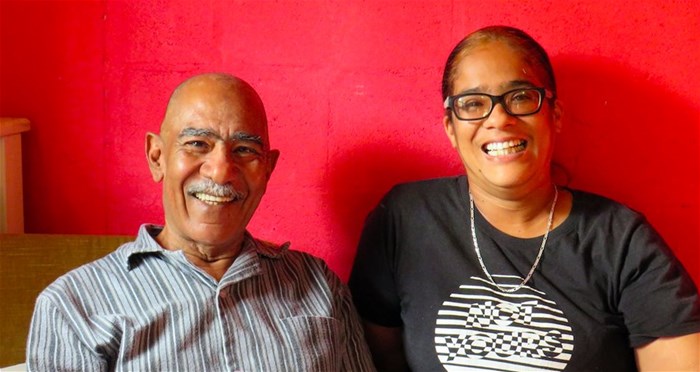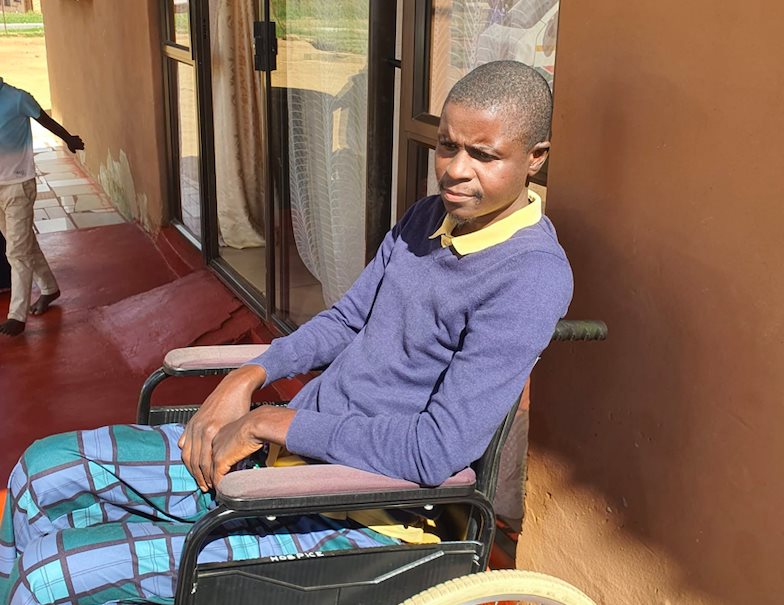
Top stories






More news










Construction & Engineering
Lesotho community left in ruins by highway project





Logistics & Transport
New digital licensing system set to transform Gauteng’s public transport sector








‘Patients and their families are often scared to approach a hospice, or panic when their doctor proposes palliative care, because they believe that this is giving up. The holistic care that our members offer, often alongside curative treatments, improves quality of life and can even extend life,” says Dr Ewa Skowronska, CEO of the Hospice Palliative Care Association (HPCA).
Stewart Gordon’s story is an excellent example of this. According to Sister Angelique Botha, a home care nurse at Helderberg Hospice, he had 14% cardiac function left, was bed bound and had difficulty breathing when he was referred by Groote Schuur Hospital. Helderberg Hospices’ interdisciplinary team of a doctor, nurse and social worker visited Gordon in his home and within a month he was walking again.
Says Dr Mark Hosking, who cared for Gordon: “The essence of palliative care is the interdisciplinary focus that we bring to the patient’s bedside.”
His colleague, Heidi Hendricks, a social worker at Helderberg Hospice, concurs: “Empathy and patience are key elements in our work. Each patient is unique, and we as social workers celebrate this uniqueness and encourage patients and families to live and make decisions as the experts of their own lives.”

A lifelong motorcycle enthusiast, Gordon longed to go riding once more and ultimately his palliative care team deemed him well enough to spend a day riding on a Harley Davidson with a local cycling club. He passed away peacefully at his home, surrounded by his loved ones, two and a half years after being referred to Helderberg Hospice.
“Living with a serious illness can be difficult, especially when it comes to managing complex and distressing symptoms,” says Dr Jesne Kistan from Hospice East Rand. “That's where palliative care comes in. Our goal is to improve the quality of life for patients living with serious illnesses. Our palliative care services are available to patients admitted to hospitals as well as ill patients in the comfort of their homes. We work alongside oncologists, physicians, neurologists, surgeons, internists, nurses, and other clinical teams to ensure the best possible care for our patients.”
According to Dr Ally, a palliative care doctor that works with Lambano Sanctuary, patients are often referred late to hospices as there is a perception that only end-of-life care is provided. This delays the support that palliative care can offer not just the patient, but the family. “We recently had a 9-year-old patient who was not referred to the palliative care team upon diagnosis and was in a lot of discomfort by the time she came to us,” says Ally. “Patients could benefit a lot from referral at the point of diagnosis so that palliative support can commence during curative treatment.”
“Palliative care operates with the philosophy of kindness and compassion. Our members provide palliative care to families and caregivers as well,” says Leigh Meinert, Advocacy and Operations manager at the HPCA. “In the 2021/2022 financial year, HPCA’s members provided palliative care for 15,793 patients, and support to 22,699 family members.”
Stewart Gordon’s sister, Patricia van Wyk, supports this: “As a family member, I can see the value of having hospice in your life. It is the beginning of the journey, not the end.”

In the case of a patient cared for by Estcourt Hospice (diagnosis of HIV and TB), he went from being bedridden with bedsores, incontinent, weak and emaciated to being able to walk unassisted (with the aid of a walker), gaining weight and adhering to treatment with hope of a full recovery.
This took place with the assistance of a social worker who had him moved from a relative’s house to the in-patient unit and provided psychosocial care, and a physiotherapist that provided him with intensive physical support. The psychosocial issues dealt with by the social worker included family counselling, as there were challenges regarding conflict with his sister, access to a disability grant, education about positive living and encouraging a healthy diet and exercises. Working with this aspect was critical as conflict with family, dealing with his illnesses and neglect from his family was making him feel depressed, and hopeless.
Say Meinert: “HPCA are launching Hospice Week this year with a short video that we have made about Stewart and his family’s experience with hospice. There are many more hope-filled stories from our members that showcase the difference that a interdisciplinary palliative care team can make. Whether aiming for a cure or navigating end-of-life, hospices provide the best possible holistic support and care for life-limiting diagnoses.”
To read any of the stories featured, for more information on palliative care, or to find a hospice in your area, visit: www.hpca.co.za.